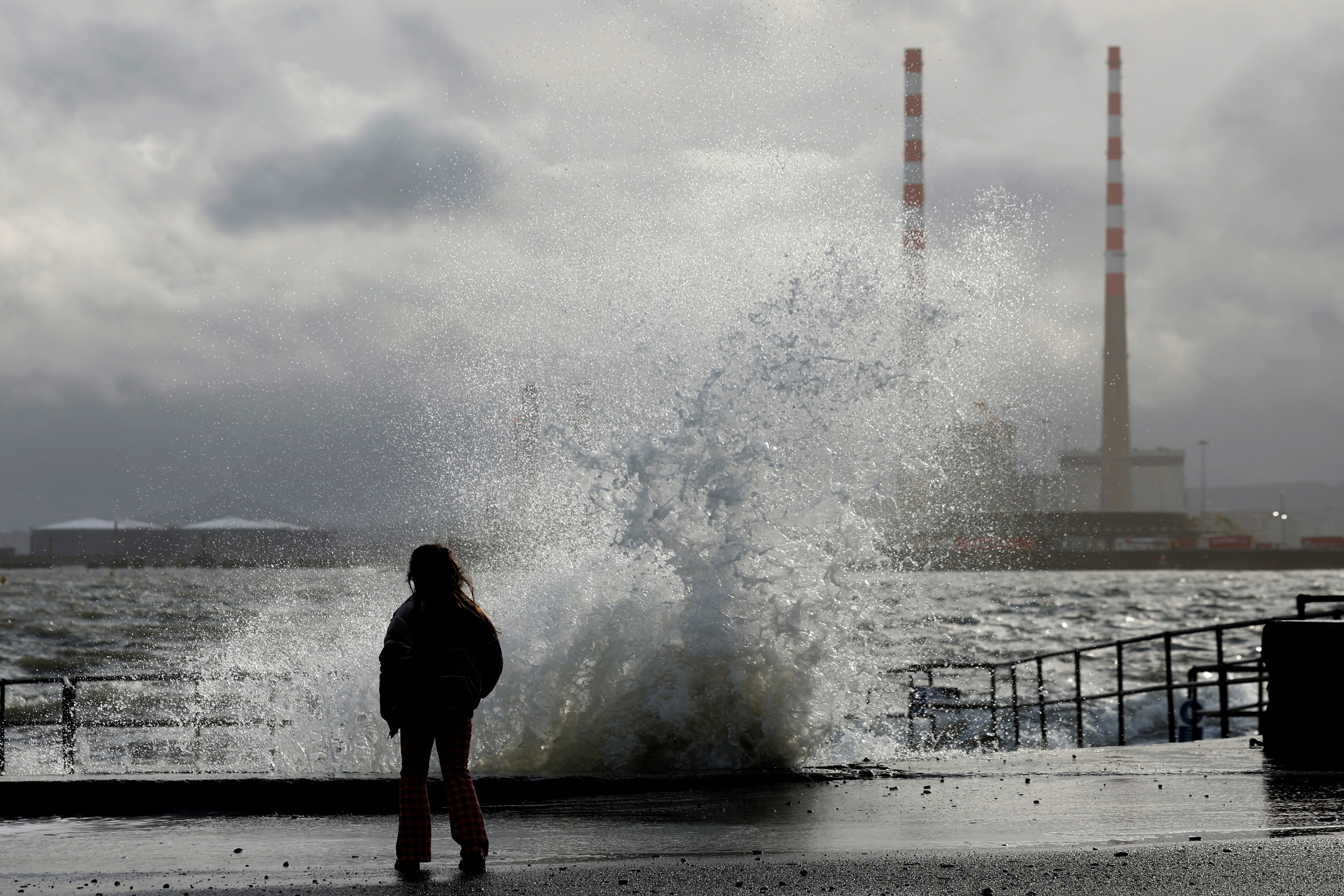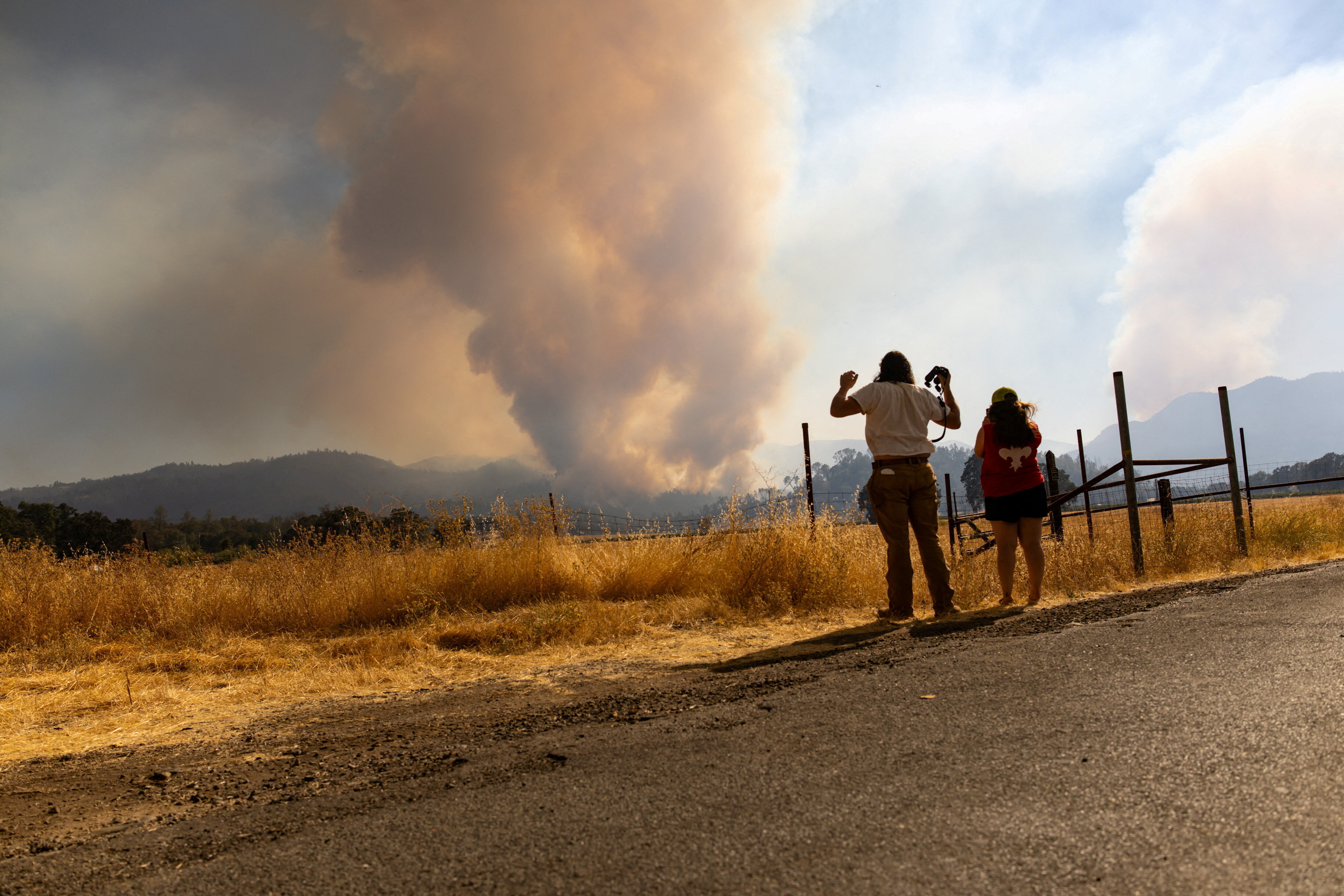US cities are going to keep getting hotter

By 2050, 41% of the year will be over 105ºF (41ºC) in Miami. Image: REUTERS/David McNew
If you live in the northern hemisphere, you’ve probably been feeling the heat in recent weeks.
While summer still has some way to go, extreme hot weather has characterized the season, with heatwaves and sweltering temperatures sparking destructive wildfires, grounding planes, damaging crops and endangering lives.
And the hottest topic of all is whether 2018 is just a freak year. According to the Geneva-based World Meteorological Organisation, the extreme events of June and July are compatible with the general long-term climate change trend caused by rising concentrations of greenhouse gases.
In other words, it's probably going to keep getting hotter, with scientists at Climate Central predicting the number of hot days will increase in the coming decades. Miami, for example, is set to have 151 days a year where the temperature exceeds 105ºF (41ºC) by 2050. That’s up from just 24 days a year in 2000.

Globally, June was the second warmest on record, according to the European Centre for Medium Range Weather Forecasts Copernicus Climate Change Service. Many parts of the US have been overtaken by heat. Downtown Los Angeles set a new monthly July minimum overnight record of 26.1°C in July, while Waco, Texas reported an all-time high temperature record of 45.6°C.
"2018 is shaping up to be one of the hottest years on record, with new temperature records in many countries,” says World Meteorological Organisation Deputy Secretary-General Elena Manaenkova. “The heatwaves and extreme heat we are experiencing are consistent with what we expect as a result of climate change caused by greenhouse gas emissions. This is not a future scenario. It is happening now.”
As well as creating difficult living conditions for humans and animals, hotter temperatures have an impact on health, agriculture, ecosystems and infrastructure and in some places have led to wildfires. Hotter days are also associated with air stagnation and they increase the risk of illnesses like heat stroke and respiratory disease.
Climate Central also analyzed the consecutive number of very hot days each year, or so-called heat streaks. That analysis showed 75% of the 244 US cities analyzed had experienced longer heat streaks than 50 years ago.

Texas saw the longest streaks above 95ºF (35ºC). On average, compared with a half-century ago, there is an additional month of temperatures above 100ºF (38ºC) in Austin and above 95ºF (35ºC) in Houston, according to the Climate Central data.

Over time, this warming will change what is considered normal, says Climate Central. The current normal temperatures come from NOAA/NCEI and are based on 30-year average temperatures from 1981-2010.
In a few years, those “normals” will be redefined using the data from 1991 to 2020.
On top of the environmental cost, there’s a monetary one. A 2015 report from the U.S. Energy Information Administration showed American households spend more on air conditioning than any other part of their annual electricity budget.
And with the Climate Central predictions for a greater number of hotter days, that’s probably set to rise in line with temperatures.
Don't miss any update on this topic
Create a free account and access your personalized content collection with our latest publications and analyses.
License and Republishing
World Economic Forum articles may be republished in accordance with the Creative Commons Attribution-NonCommercial-NoDerivatives 4.0 International Public License, and in accordance with our Terms of Use.
The views expressed in this article are those of the author alone and not the World Economic Forum.
Stay up to date:
United States
Related topics:
Forum Stories newsletter
Bringing you weekly curated insights and analysis on the global issues that matter.
More on Nature and BiodiversitySee all
Sebastian Buckup
February 4, 2026






